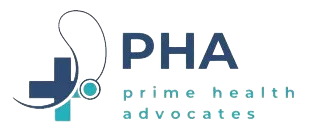Alternative Treatments
for ED

Blog Details
Know About Wave Therapy
How to Keep Swell Even If You Can't
How it Works
Rising Above the Fall: Maintaining Your Confidence During Erectile Dysfunction
Erectile dysfunction (ED) can be a challenging condition, but there are various treatment options available beyond traditional medications. Exploring alternative treatments can offer new solutions and complement conventional therapies. This post provides an overview of alternative treatments for ED, helping you make informed choices for managing and improving your sexual health.
Lifestyle Modifications
Wave therapy, formally known as low-intensity extracorporeal shockwave therapy (LI-ESWT), uses sound waves to stimulate the tissues in the penis. Unlike other treatments that primarily focus on symptoms, wave therapy aims to enhance the underlying vascular health of the penis. The therapy involves applying low-intensity sound waves to the penile tissues using a handheld device. These sound waves penetrate deep into the tissue, triggering a process known as neovascularization.
Neovascularization: Building New Blood Vessels
Neovascularization is the formation of new blood vessels, which is vital for improved blood flow. When sound waves are applied to the penile tissues, they encourage the growth of new blood vessels. This not only enhances blood flow to the penis but also improves oxygenation and nutrient delivery to the tissues. Better blood circulation directly translates to stronger, more sustainable erections, which are essential for satisfying sexual activity.
Rejuvenating Existing Blood Vessels
In addition to creating new blood vessels, wave therapy also helps repair and rejuvenate existing blood vessels that may have become damaged or weakened over time. This rejuvenation process is crucial for men whose ED is caused by vascular issues, as it restores the natural function of the penile blood vessels, leading to improved erectile function.
What to Expect During Treatment
Wave therapy is a non-invasive procedure, meaning it does not involve surgery or needles. Each session typically lasts about 15-20 minutes, during which a healthcare provider uses a specialized device to deliver sound waves to specific areas of the penis. The procedure is painless and does not require anesthesia, allowing patients to resume their daily activities immediately afterward.
The Benefits of Wave Therapy for Erectile Dysfunction
Wave therapy, also known as low-intensity extracorporeal shockwave therapy (LI-ESWT), is gaining attention as an innovative treatment for erectile dysfunction (ED). Unlike traditional treatments, which often focus on managing symptoms, wave therapy addresses the underlying vascular issues that cause ED. Here are some of the key benefits of wave therapy:
Non-Invasive and Painless
One of the most appealing aspects of wave therapy is that it is completely non-invasive. There are no incisions, needles, or anesthesia required. The treatment is administered using a handheld device that delivers low-intensity sound waves to the penile tissues, making the procedure painless and comfortable.
Promotes Natural Healing
Wave therapy stimulates the growth of new blood vessels (neovascularization) and repairs existing ones, enhancing blood flow to the penis. This process addresses the root cause of ED, leading to more natural and sustainable erections without the need for medications or external devices.
Considerations and Limitations
Effectiveness
Variable Results: While wave therapy has demonstrated promising results for many men, its effectiveness can vary. Some individuals experience significant improvements in erectile function, while others may see only minimal or no benefit.Severity of ED: Wave therapy may be less effective for those with severe ED or advanced underlying health conditions. It is generally more successful in cases of mild to moderate ED.Underlying Health Issues: Individuals with significant health issues, such as severe cardiovascular disease or diabetes, may not respond as well to wave therapy. Addressing the root causes of these conditions is crucial for overall treatment success.
Cost
High Expense: Wave therapy can be costly, with prices varying depending on the provider and the number of sessions required. The cost of treatment can add up, particularly if multiple sessions are needed. Insurance Coverage: In many regions, wave therapy is considered experimental or not yet fully validated. As a result, it may not be covered by health insurance plans, making it an out-of-pocket expense for many patients.
Limited Long-Term Data
Research Stage: Although wave therapy has shown positive outcomes in some studies, it is still considered relatively new and ongoing research is needed to fully understand its long-term effectiveness and safety.Evidence Base: The evidence supporting the long-term benefits and durability of wave therapy is still evolving. More extensive clinical trials and longitudinal studies are needed to provide conclusive data.
Treatment Duration and Commitment
Multiple Sessions Required: Effective results often require a series of treatment sessions over a period of weeks or months. This commitment can be time-consuming and may require adjustments to personal schedules.Maintenance: Some patients may require periodic maintenance treatments to sustain the benefits achieved from the initial sessions.
Not a Cure-All
Complementary Approach: Wave therapy should be considered as part of a comprehensive approach to managing ED. It may be used alongside other treatments, such as lifestyle changes, medications, or psychological counseling, to achieve the best results.Individual Variation: The therapy may not address all underlying issues contributing to ED, such as psychological factors or severe vascular damage. A holistic approach to treatment is often necessary.
Other Interesting Reads
Other Interesting Reads
Give us a call and speak to one of our helpline experts. Live a life worth loving.
Start the recovery
journey
Start the recovery
journey
To find out local clinics that sponsor
or
Take a survey and we`ll help you
About us
PHA is the leading men's healthcare site in the region that also stands committed to providing for the ever-growing and diverse healthcare needs of the individuals in our community.
Contact information
5904 Warner Ave Ste A - 2007
Huntington Beach, CA 92649







